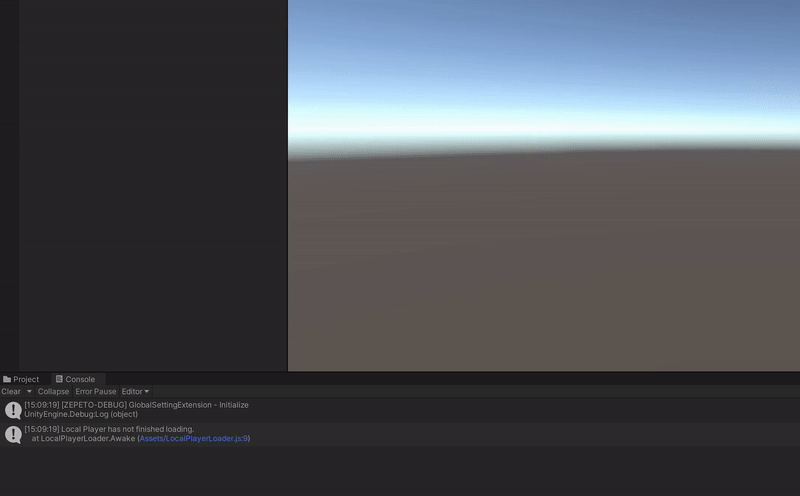The ZepetoPlayer serves as the unit instance for the ZEPETO character in a multiplayer world. It represents both the player you directly control and other players in the scene.
In this guide, we'll explore how to utilize the ZEPETO Player's API to display information about the Local Player you're operating.
Zepeto Player API
If you're interested in the ZepetoPlayer API, refer to the documentation:
- Please refer to the following guide. [ZEPETO.Character.Controller API]
Basic Local Player Usage Example
Checking the Loading Status of the Local Player
Make use of the OnAddedLocalPlayer() callback to verify if the Local Player has loaded.
Here's a sample code illustrating this:
import { ZepetoScriptBehaviour } from 'ZEPETO.Script';
import { SpawnInfo, ZepetoPlayers, LocalPlayer, ZepetoCharacter } from 'ZEPETO.Character.Controller';
import { WorldService } from 'ZEPETO.World';
export default class LocalPlayerLoader extends ZepetoScriptBehaviour {
private _localPlayer: LocalPlayer;
Awake() {
if(!this._localPlayer) {
console.log("Local Player has not finished loading.");
}
}
Start() {
ZepetoPlayers.instance.CreatePlayerWithUserId(WorldService.userId, new SpawnInfo(), true);
ZepetoPlayers.instance.OnAddedLocalPlayer.AddListener(() => {
this._localPlayer = ZepetoPlayers.instance.LocalPlayer;
console.log("Local Player has finished loading.");
});
}
}
- Script Explanation:
- Initially, the
this._localPlayeris undeclared, meaning it has a null value. You create the local player based on the logged-in user ID using ZepetoPlayers.instance.CreatePlayerWithUserId(). Once the local player has finished loading, theOnAddedLocalPlayer()callback assigns value tothis._localPlayer.- This method allows you to load the local player and verify its loading status.
- Initially, the

Console Logs before and after LocalPlayer Loading
Displaying Local Player Information
Below is an example of how to print the zepeto ID, user ID, and name of the loaded local player to the console log.
Please note that in the sample code provided, ZepetoPlayers.instance.CreatePlayerWithUserId() is not explicitly added.
import { ZepetoScriptBehaviour } from 'ZEPETO.Script'
import {LocalPlayer, ZepetoPlayers} from "ZEPETO.Character.Controller";
export default class LocalPlayerInfo extends ZepetoScriptBehaviour {
private _localPlayer: LocalPlayer;
Start() {
ZepetoPlayers.instance.OnAddedLocalPlayer.AddListener(() => {
this._localPlayer = ZepetoPlayers.instance.LocalPlayer;
console.log(`Is LocalPlayer : ${this._localPlayer.zepetoPlayer.isLocalPlayer}`);
console.log(`User ID : ${this._localPlayer.zepetoPlayer.userId}`);
console.log(`Name : ${this._localPlayer.zepetoPlayer.name}`);
});
}
}

